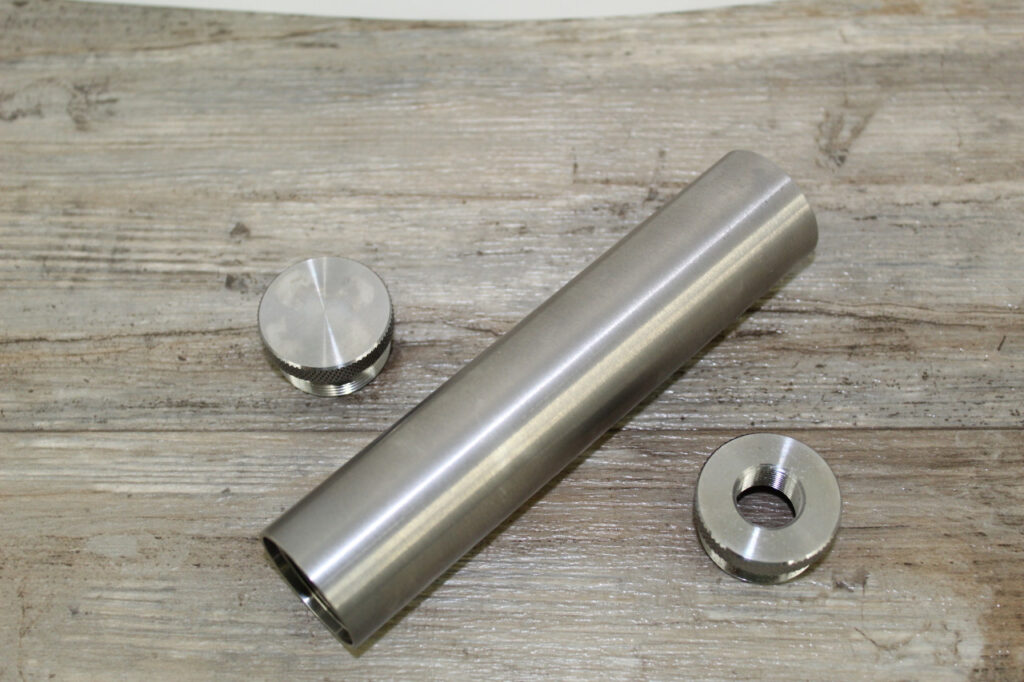Solvent traps have garnered attention in various communities due to their versatility and practicality. Originally designed for capturing solvent fluids during firearm cleaning, these devices have found uses beyond their intended purpose. If you’ve come across discussions about solvent traps, you may have encountered the term “D cell.” In this article, we will delve into the meaning of them in the context of a solvent trap and explore its significance.
Table of Contents
Understanding D Cell Solvent Trap
Before we dive into the meaning, let’s briefly discuss what a solvent trap is and its primary purpose. A solvent trap is a device designed to catch and contain solvent fluids during the cleaning process of firearms. It typically consists of a tube with various compartments and storage cups that capture and store solvents, preventing their release into the environment. Solvent traps help maintain a clean and controlled workspace during firearm maintenance.
Unveiling the Terminology

“D cell” refers to a specific size or type of storage container used in solvent trap kits. The term originates from D cell batteries, which are commonly used cylindrical batteries often found in flashlights and other electronic devices. The dimensions of these batteries have become a standard reference point for the size of storage cups or tubes used in solvent traps.
Significance and Compatibility
The D cell solvent trap size has gained popularity among solvent trap enthusiasts due to its compatibility and availability. By utilizing storage cups or tubes with dimensions that match batteries, solvent trap manufacturers ensure ease of use and enable users to conveniently source replacements or additional components. This compatibility also allows for easy integration with other accessories or modifications, providing a consistent and standardized form factor.
It is important to note that while solvent traps have practical applications in capturing solvents during firearm cleaning, modifying them into suppressors or using them for any illegal purpose is strictly prohibited. The manufacturing, possession, and use of suppressors or any regulated firearm accessories should always adhere to the laws and regulations of your jurisdiction. It is crucial to thoroughly research and understand local laws before engaging with solvent traps or any firearm-related equipment.
Responsible Use and Education
As with any firearm-related equipment, responsible use and education are paramount. It is essential to familiarize yourself with local laws and regulations regarding suppressors, solvent traps, and any other firearm accessories. Stay informed, seek guidance from legal professionals, and ensure compliance with all applicable laws to maintain a safe and responsible approach to firearms and their maintenance.
Faq:

Q1: What is a D cell solvent trap?
A D cell solvent trap is typically a cylindrical tube or container, often made of aluminum or other durable materials, designed to thread onto the end of the barrel of a firearm. It is used to catch and contain solvent or cleaning fluids when cleaning the firearm’s barrel or other parts. The term “D cell” usually refers to a specific size of solvent trap, with D cell being one of the many standard sizes available.
Q2: Why are solvent traps used?
Solvent traps are used to prevent cleaning solvents and debris from spilling onto the surrounding area during the cleaning process. They help collect and contain the cleaning solution and fouling that is removed from the firearm’s barrel or other components.
Q3: Are those solvent traps legal?
The legality of solvent traps can vary by jurisdiction and can change over time due to evolving laws and regulations. In some places, they may be legal to own and use for their intended purpose, which is firearm maintenance. However, it’s essential to check your local, state, and federal laws to ensure compliance. Additionally, the legal status of solvent traps can be affected by their potential for modification into illegal suppressors or silencers.
Q4: Can they be used to make suppressors?
Solvent traps have been a topic of legal concern because, with some modifications, they can be turned into suppressors or silencers, which are heavily regulated in many countries, including the United States. As a result, it is essential to understand and comply with all relevant firearms laws when dealing with solvent traps, as any attempt to create an illegal suppressor can lead to severe legal consequences.
Q5: How can I legally use a them?
To use a D cell solvent trap legally, it’s crucial to follow the laws and regulations in your area. Generally, you should use them only for their intended purpose, which is firearm cleaning and maintenance. Avoid any modifications that could turn them into suppressors without the appropriate permits and approvals.
Q6: Where can I purchase D cell solvent trap?
Solvent traps can be found at various online retailers and firearm accessory stores. Ensure that you are purchasing from a reputable source and that you are aware of the legal requirements in your jurisdiction.
Q7: Can I make my own D cell solvent trap?
It is possible to manufacture your own solvent trap, but it’s essential to be aware of the legal restrictions and ensure that you do not inadvertently create an illegal suppressor. If you choose to make your own solvent trap, consider seeking legal advice or consulting with experts in firearm laws to ensure compliance.
Remember that firearm laws can be complex and subject to change, so always stay informed and act responsibly when dealing with firearm-related accessories like solvent traps. Consult local legal authorities or legal experts for guidance specific to your situation.
Conclusion:

D cell solvent trap refers to a specific size or type of storage container used in solvent trap kits, influenced by its battery dimensions commonly found in flashlights and electronic devices. Understanding this terminology helps users identify compatible components and maintain consistency within solvent trap setups. However, it is crucial to emphasize responsible use, compliance with local laws, and a commitment to firearm safety education. Engaging in any modifications or illegal activities with solvent traps or firearm accessories is strictly prohibited. Prioritize safety, legality, and responsible firearm ownership at all times.
